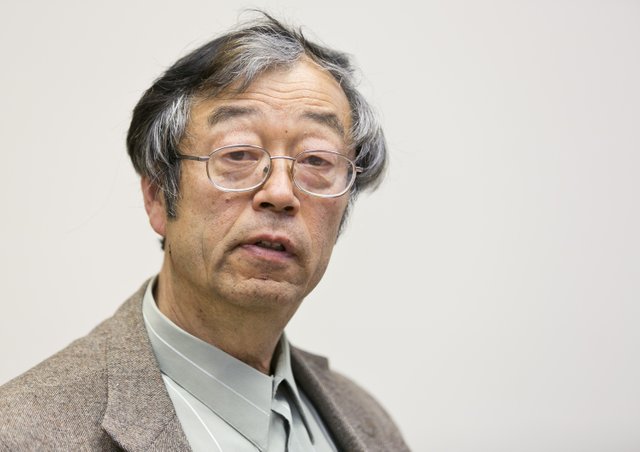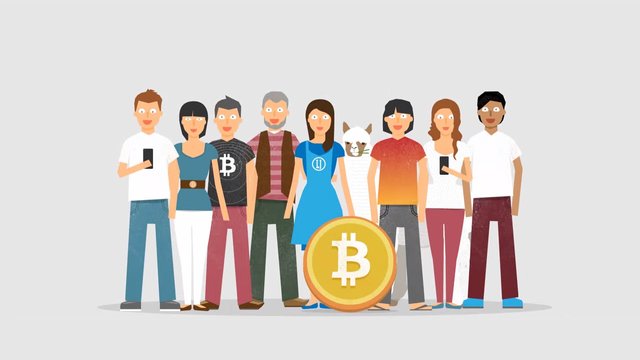Satoshi Nakamoto : A retired hero

On February 11, 2009, 22:27, in one remote corner of the world wide web, an anonymous individual identifying himself with the name of "Satoshi Nakamoto" made a historical announcement, introduced the world to Bitcoin 1.0. Ever since its announcement, both bitcoin and the name of its creators "Satoshi Nakamoto" continued to grow increasingly popular, as more people begin to venture into the uncharted waters of the cryptocurrency space, but the real identity of this individual continues to remain an unsolved mystery.
" I've developed a new open source P2P e-cash system called Bitcoin. It's completely decentralized, with no central server or trusted parties, because everything is based on crypto proof instead of trust. Give it a try, or take a look at the screenshots and design paper:
Download Bitcoin v0.1 at http://www.bitcoin.org
The root problem with conventional currency is all the trust that's required to make it work. The central bank must be trusted not to debase the currency, but the history of fiat currencies is full of breaches of that trust. Banks must be trusted to hold our money and transfer it electronically, but they lend it out in waves of credit bubbles with barely a fraction in reserve. We have to trust them with our privacy, trust them not to let identity thieves drain our accounts. Their massive overhead costs make micropayments impossible.
A generation ago, multi-user time-sharing computer systems had a similar problem. Before strong encryption, users had to rely on password protection to secure their files, placing trust in the system administrator to keep their information private. Privacy could always be overridden by the admin based on his judgment call weighing the principle of privacy against other concerns, or at the behest of his superiors. Then strong encryption became available to the masses, and trust was no longer required. Data could be secured in a way that was physically impossible for others to access, no matter for what reason, no matter how good the excuse, no matter what.
It's time we had the same thing for money. With e-currency based on cryptographic proof, without the need to trust a third party middleman, money can be secure and transactions effortless.
One of the fundamental building blocks for such a system is digital signatures. A digital coin contains the public key of its owner. To transfer it, the owner signs the coin together with the public key of the next owner. Anyone can check the signatures to verify the chain of ownership. It works well to secure ownership, but leaves one big problem unsolved: double-spending. Any owner could try to re-spend an already spent coin by signing it again to another owner. The usual solution is for a trusted company with a central database to check for double-spending, but that just gets back to the trust model. In its central position, the company can override the users, and the fees needed to support the company make micropayments impractical.
Bitcoin's solution is to use a peer-to-peer network to check for double-spending. In a nutshell, the network works like a distributed timestamp server, stamping the first transaction to spend a coin. It takes advantage of the nature of information being easy to spread but hard to stifle. For details on how it works, see the design paper at http://www.bitcoin.org/bitcoin.pdf
The result is a distributed system with no single point of failure. Users hold the crypto keys to their own money and transact directly with each other, with the help of the P2P network to check for double-spending."
-Satoshi Nakamoto
http://www.bitcoin.org

Australian entrepreneur Craig Wright (Source)
Last year in May 2016, when Australian entrepreneur Craig Steven Wright claimed to be the real Satoshi Nakamoto, there were several others backing his claims, before it was understood that these "proofs" weren't solid. But this, wasn't the first-time people made speculations as to who Satoshi Nakamoto might be.
PREVIOUS CLAIMS
In 2011, author Joshua Davis allegedly narrowed down a list of possible individuals including a Finnish economic sociologist Dr Vili Lehdonvirta and Michael Clear,an Irish Student.
In October of the same year, Adam Penenberg identified Neal King, Vladimir Oksman and Charles Bry who filed a patent in 2008, which was then dismissed as circumstantial evidence.
Two years later in 2013, a theory suggesting crytographer and researcher, Nick Sbazo as Nakamoto was posted by researcher Skye Grey.

Dorian Nakamoto
A year later in 2014, Dorian Prentice Satoshi Nakamoto was considered the real Satoshi Nakamoto due to his birth name and work, before he denied this claim, just like the previous ones.
His pictures appears in thumbnail, on googling the Bitcoin creator's name.

Source
So far, none of the theories have been conclusive. The world is unaware of its identity and perhaps will be in the future. What we know for sure is that his creation bitcoin has revolutionized money as we know, and that his genius rightfully holds a place beside the most elite minds, including Einstein and Newton that made its marvellous design possible.
Like a retired hero, Satoshi Nakamoto watches silently from the shadows, as the entire world continues to adopt his creation. He could be an individual or a group, someone who still lives among us or had left us a long time ago, but above everything else Satoshi Nakamoto and his brainchild, Bitcoin, are ideas, the ideas of liberating the world from the clutches of centralized economy and returning financial rights to the people to where it truly belongs, and as the character V from the film V for Vendetta said, "ideas are bulletproof". In investing, learning and spreading his message, we are fueling this endeavor. In many ways, we, the HODLers, investors and developers are becoming a part of him.
You can't kill an idea, V for Vendetta, I love that movie. I like it that Satoshi decided to be a mystery person or group. So, even in death bitcoin's worth won't be affected. Just imagine what would happen to Ethereum if Vitalik is to die.
@greenrun Thats the thing with anonymity! You can't reduce it to just one person or a group, making it immune to an attack. Vitalik did an excellent job as an entrepreneur, but there are many competitors,so unless someone worthy decides to fulfill his legacy, chances are it will be overthrown. There are way better technologies out today, but Bitcoin will always hold a position in the crypto-space. :-)
I totally agree with you. Steem on!